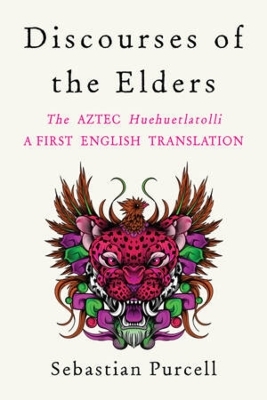
Discourses of the Elders
The Aztec Huehuetlatolli A First English Translation
Seiten
2023
WW Norton & Co (Verlag)
978-1-324-02058-5 (ISBN)
WW Norton & Co (Verlag)
978-1-324-02058-5 (ISBN)
A philosophy grounded not in a transcendent divinity, afterlife or individualism, but in a rooted communal life
The Aztecs of central Mexico had a rich philosophical tradition, recorded in Latin script by Spanish clergymen—one of the earliest transcripts being Huehuetlatolli, or Discourses of the Elders, compiled by Fr Andres de Olmos circa 1535.
Novel in its form, the Discourses consists of short conversations between elders and young people on how to achieve a meaningful and morally sound life. These conversations bring to light the Aztec ethical landscape in brilliant clarity. Their core values relied on collective responsibility and group wisdom, not individual thought and action, focused on a person’s actions in this realm rather than expectations of an afterlife.
Never before translated into English in its entirety, and one of the first works to be translated from the original Nahuatl, the Discourses proves that philosophy can be active, communal and grounded not in a “pursuit of happiness” but rather pursuit of a meaningful life.
The Aztecs of central Mexico had a rich philosophical tradition, recorded in Latin script by Spanish clergymen—one of the earliest transcripts being Huehuetlatolli, or Discourses of the Elders, compiled by Fr Andres de Olmos circa 1535.
Novel in its form, the Discourses consists of short conversations between elders and young people on how to achieve a meaningful and morally sound life. These conversations bring to light the Aztec ethical landscape in brilliant clarity. Their core values relied on collective responsibility and group wisdom, not individual thought and action, focused on a person’s actions in this realm rather than expectations of an afterlife.
Never before translated into English in its entirety, and one of the first works to be translated from the original Nahuatl, the Discourses proves that philosophy can be active, communal and grounded not in a “pursuit of happiness” but rather pursuit of a meaningful life.
Sebastian Purcell is an award-winning associate professor of philosophy at SUNY-Cortland in New York, where he researches ethics, Aztec philosophy, and mathematical logic. He resides in Binghamton, New York.
| Erscheinungsdatum | 17.08.2023 |
|---|---|
| Übersetzer | Sebastian Purcell |
| Verlagsort | New York |
| Sprache | englisch |
| Maße | 147 x 218 mm |
| Gewicht | 391 g |
| Themenwelt | Geschichte ► Allgemeine Geschichte ► Vor- und Frühgeschichte |
| Geisteswissenschaften ► Geschichte ► Regional- / Ländergeschichte | |
| Geisteswissenschaften ► Philosophie ► Ethik | |
| Sozialwissenschaften | |
| ISBN-10 | 1-324-02058-X / 132402058X |
| ISBN-13 | 978-1-324-02058-5 / 9781324020585 |
| Zustand | Neuware |
| Haben Sie eine Frage zum Produkt? |
Mehr entdecken
aus dem Bereich
aus dem Bereich
auf den Spuren der frühen Zivilisationen
Buch | Hardcover (2023)
C.H.Beck (Verlag)
20,00 €
Was Pompeji über uns erzählt
Buch | Hardcover (2023)
Propyläen (Verlag)
32,00 €


